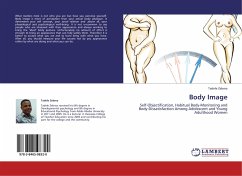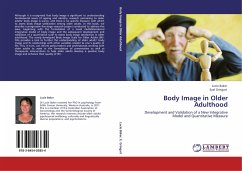Body image is a multidimensional construct that involves internal biological and psychological factors as well as external cultural and social factors. It translates perceptions and attitudes, thoughts and feelings about one's appearance and is also culturally oriented. It is related to self-esteem, sexuality, family relationships and identity. Given the fact that body image is a multifaceted structural concept that depends, not only on inner-biological, but also a psychological and socio-cultural components, this study explored the role of family-of-origin processes (attachment relationship, parental control), peer relationship and media influence in order to understand the development of healthy body image in non-clinical sample. Variables that are related to and influenced by satisfaction with one's body, such as: Body mass index (BMI), eating disturbances, attachment (to mother, to father and to peers), global self-worth, parental control, peer influence and pressure regarding eating and media influence were examined in relation to satisfaction with body image. Implications for clinicians and researchers are discussed.
Bitte wählen Sie Ihr Anliegen aus.
Rechnungen
Retourenschein anfordern
Bestellstatus
Storno








